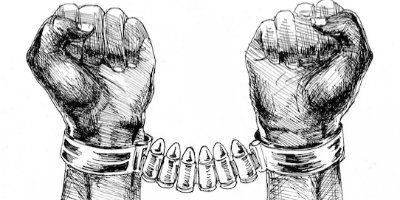dec 22, 1953 - Go Tell it on the Mountain is published
Description:
Go Tell It on the Mountain is a 1953 semi-autobiographical novel by James Baldwin. The themes of the book explores bisexuality, as well as intimate relationships between men.Baldwin's novels and plays fictionalize fundamental personal questions and dilemmas amid complex social and psychological pressures thwarting the equitable integration of not only African Americans, but also gay and bisexual men, while depicting some internalized obstacles to such individuals' quests for acceptance.
Growing up in Harlem, Baldwin faced many obstacles, one of which was his education. "I knew I was black, of course, but I also knew I was smart. I didn't know how I would use my mind, or even if I could, but that was the only thing I had to use," he said.
During his teenage years Baldwin started to realize that he was gay. In 1948, in New Jersey, he walked into a restaurant where he knew he would be denied service. When the waitress explained that African Americans were not served there, Baldwin threw a glass of water at her, shattering the mirror behind the bar. Disillusioned by American prejudice against blacks, he left the United States at the age of 24 and settled in Paris. He wanted to distance himself from American prejudice and see himself and his writing outside an African-American context. Baldwin did not want to be read as "merely a Negro; or, even, merely a Negro writer." He also hoped to come to terms with his sexual ambivalence and escape the hopelessness that many young African-American men like himself succumbed to in New York.
By the spring of 1963, the mainstream press began to recognize Baldwin's incisive analysis of white racism and his eloquent descriptions of the Negro's pain and frustration. In fact, Time featured Baldwin on the cover of its May 17, 1963 issue. "There is not another writer," said Time, "who expresses with such poignancy and abrasiveness the dark realities of the racial ferment in North and South."
Baldwin's influence on other writers has been profound: Toni Morrison edited the Library of America's first two volumes of Baldwin's fiction and essays: Early Novels & Stories (1998) and Collected Essays (1998). A third volume, Later Novels (2015), was edited by Darryl Pinckney, who had delivered a talk on Baldwin in February 2013 to celebrate the fiftieth anniversary of The New York Review of Books, during which he stated: "No other black writer I'd read was as literary as Baldwin in his early essays, not even Ralph Ellison. There is something wild in the beauty of Baldwin's sentences and the cool of his tone, something improbable, too, this meeting of Henry James, the Bible, and Harlem."
Added to timeline:
Date:
dec 22, 1953
Now
~ 71 years ago
